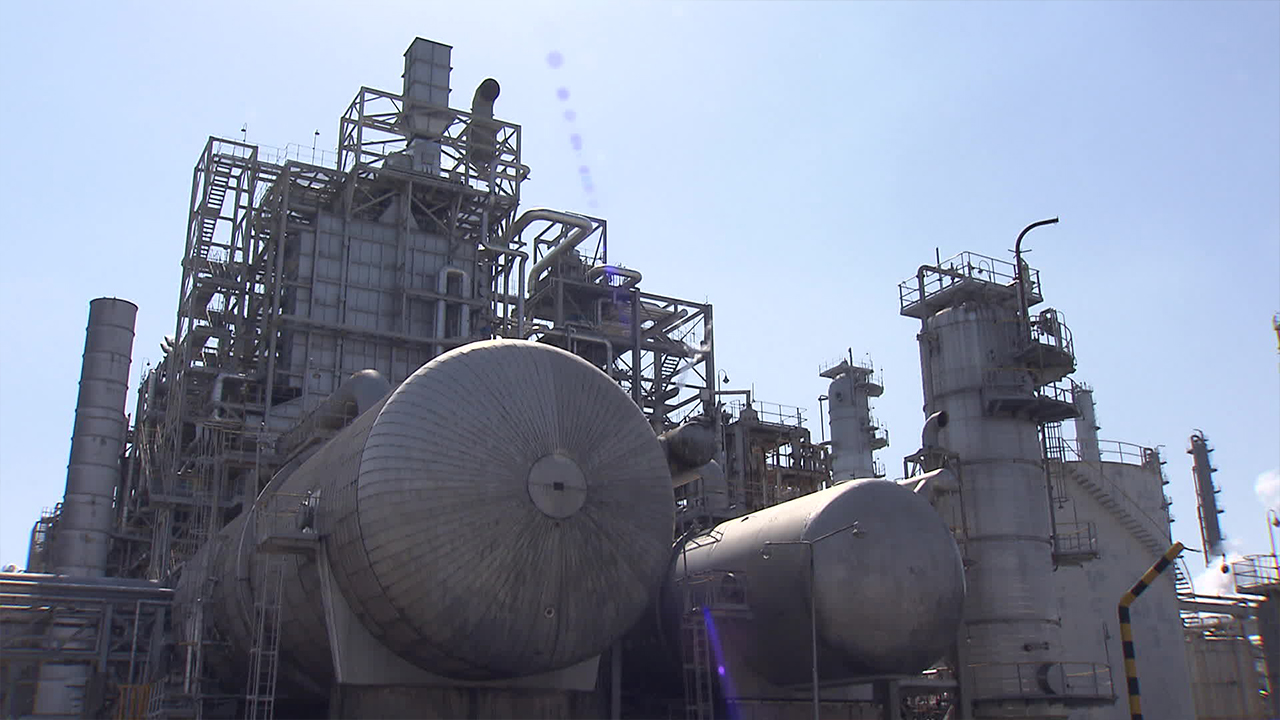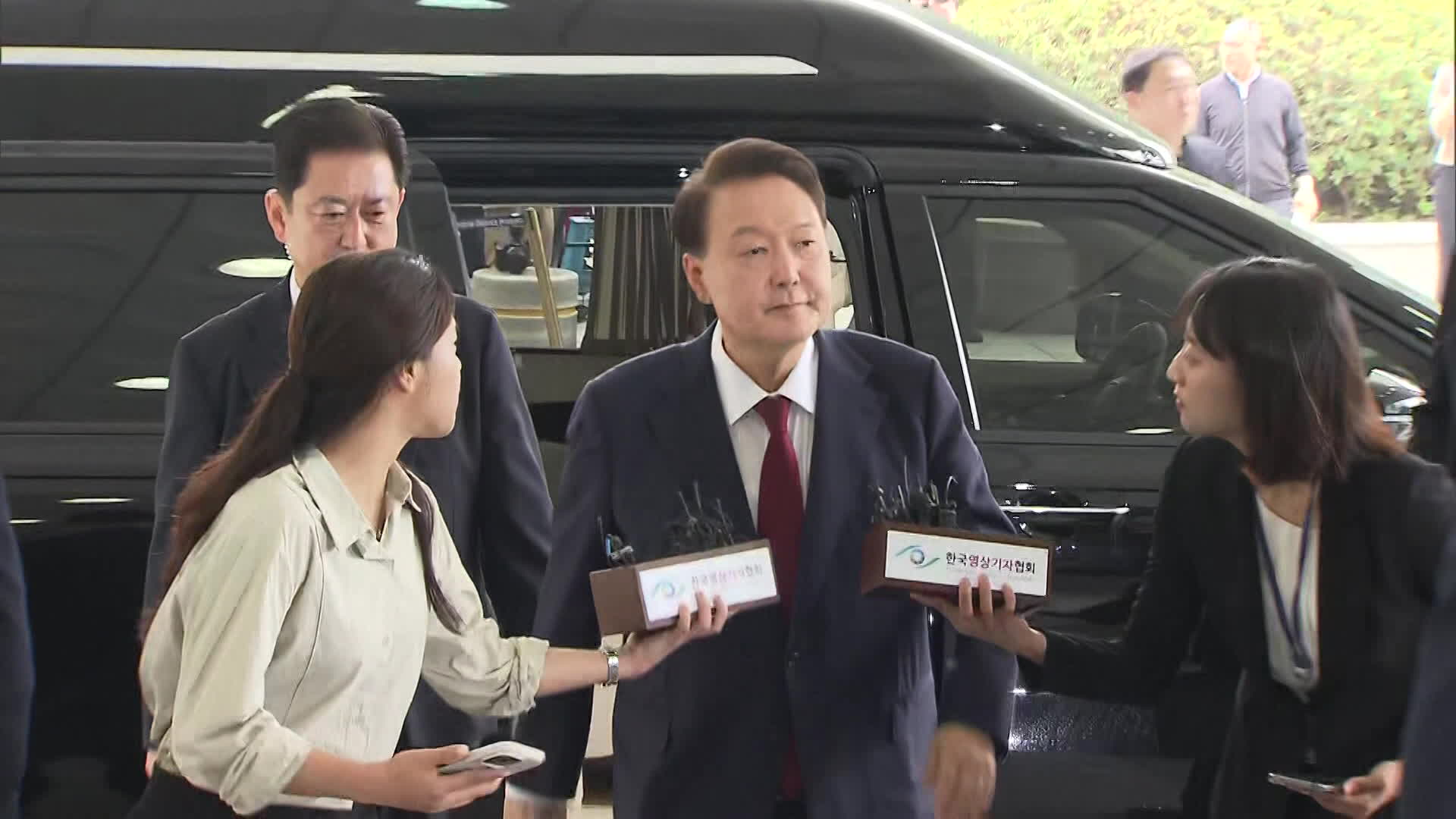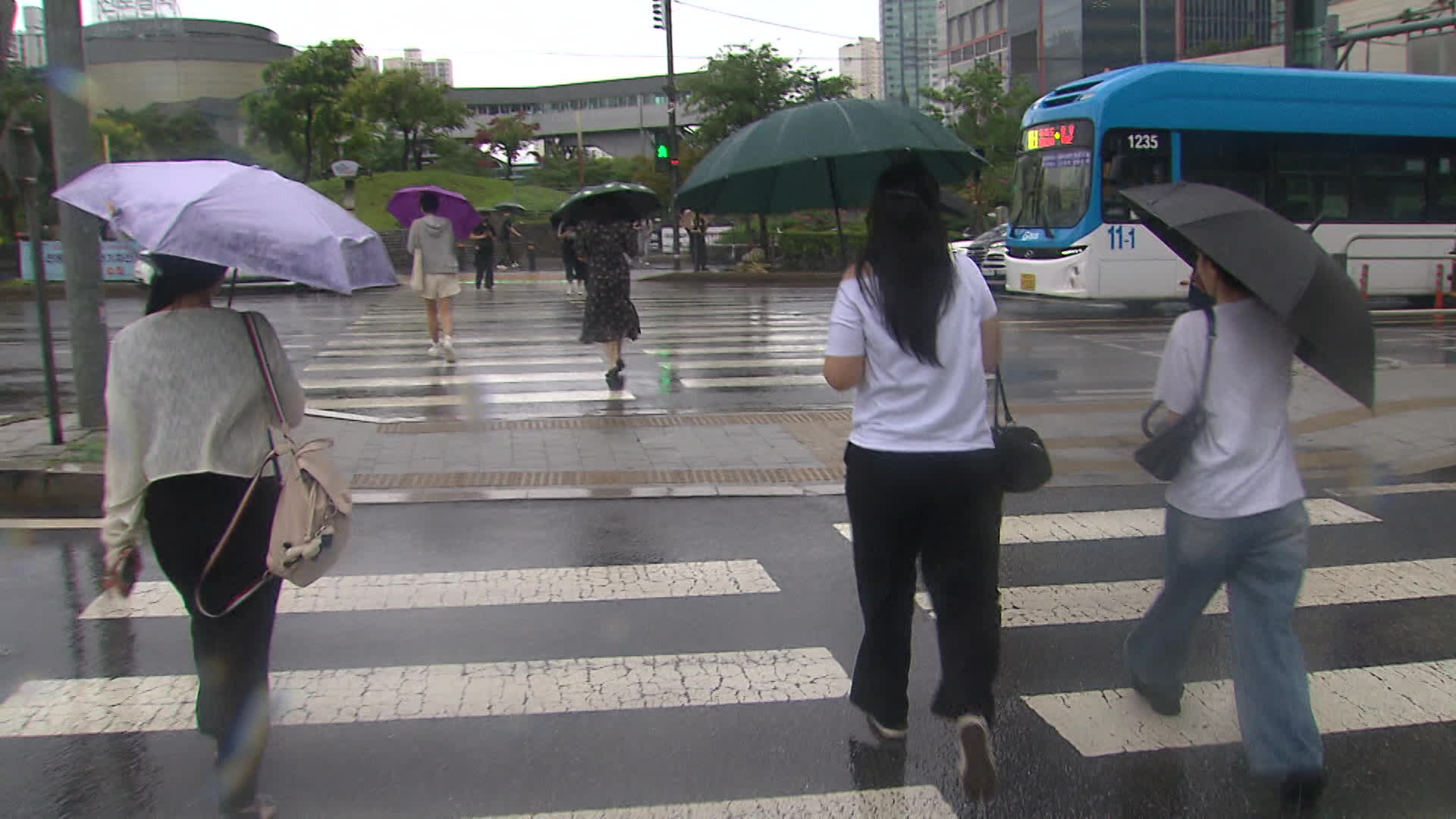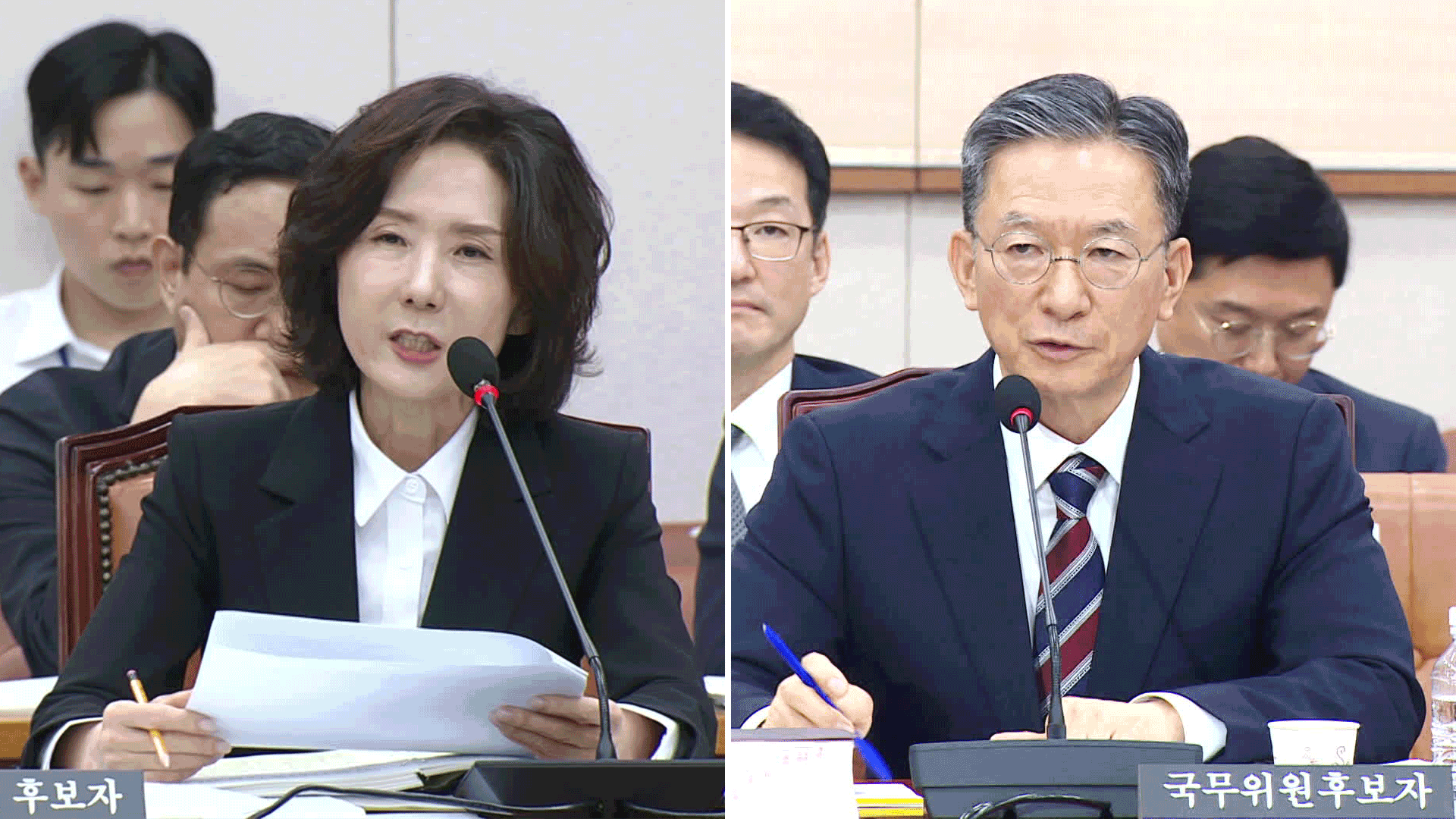[Anchor]
The crisis situation in Korea's major industries continues.
Yesterday (1.13), we reported on the steel industry, and now the petrochemical sector is also facing structural difficulties.
By the end of last year, they received the worst performance report, and companies are considering halting operations or even selling off assets.
Kim Min-kyung reports.
[Report]
This is the Lotte World Tower in Jamsil, Seoul, with an asset value of 6 to 7 trillion won.
Last year, the Lotte Group put it up as collateral for a bank loan.
This was due to the liquidity crisis faced by its subsidiary, Lotte Chemical, which struggled with poor performance.
Lotte Chemical ultimately suspended some production at its Yeosu Plant 2 starting at the end of last year.
[Kong Sang-man/Chairman of Lotte Chemical's In-house Subcontractor Union: "People on the ground are wondering if they will be able to retire at the retirement age, and the situation of our partner companies changes depending on the situation of the primary company."]
The cumulative operating loss of the four major domestic petrochemical companies reached around 500 billion won by the third quarter of last year.
The estimates for the fourth quarter are not looking good either.
LG Chem is considering selling its Yeosu NCC Plant 2, and Kumho Petrochemical is also undergoing restructuring.
[Union Official from the Petrochemical Industry: "When the shipbuilding industry went into recession, it seems to be at that level. It may be even worse than that now."]
A combination of factors such as weakened demand and oversupply from China and the Middle East are cited as the causes.
As the production of cheap products in China increases, exports to China have significantly decreased.
[Jo Yong-won/Researcher at the Korea Institute for Industrial Economics & Trade: "(China's) demand is somewhat shrinking, and in the meantime, China's self-sufficiency rate has increased a lot, so there are many cases where they have already replaced it with Chinese products."]
The government has announced support measures, claiming it will encourage the development of high-value-added products, but there are also calls for more intensive business restructuring.
KBS News, Kim Min-kyung.
The crisis situation in Korea's major industries continues.
Yesterday (1.13), we reported on the steel industry, and now the petrochemical sector is also facing structural difficulties.
By the end of last year, they received the worst performance report, and companies are considering halting operations or even selling off assets.
Kim Min-kyung reports.
[Report]
This is the Lotte World Tower in Jamsil, Seoul, with an asset value of 6 to 7 trillion won.
Last year, the Lotte Group put it up as collateral for a bank loan.
This was due to the liquidity crisis faced by its subsidiary, Lotte Chemical, which struggled with poor performance.
Lotte Chemical ultimately suspended some production at its Yeosu Plant 2 starting at the end of last year.
[Kong Sang-man/Chairman of Lotte Chemical's In-house Subcontractor Union: "People on the ground are wondering if they will be able to retire at the retirement age, and the situation of our partner companies changes depending on the situation of the primary company."]
The cumulative operating loss of the four major domestic petrochemical companies reached around 500 billion won by the third quarter of last year.
The estimates for the fourth quarter are not looking good either.
LG Chem is considering selling its Yeosu NCC Plant 2, and Kumho Petrochemical is also undergoing restructuring.
[Union Official from the Petrochemical Industry: "When the shipbuilding industry went into recession, it seems to be at that level. It may be even worse than that now."]
A combination of factors such as weakened demand and oversupply from China and the Middle East are cited as the causes.
As the production of cheap products in China increases, exports to China have significantly decreased.
[Jo Yong-won/Researcher at the Korea Institute for Industrial Economics & Trade: "(China's) demand is somewhat shrinking, and in the meantime, China's self-sufficiency rate has increased a lot, so there are many cases where they have already replaced it with Chinese products."]
The government has announced support measures, claiming it will encourage the development of high-value-added products, but there are also calls for more intensive business restructuring.
KBS News, Kim Min-kyung.
■ 제보하기
▷ 카카오톡 : 'KBS제보' 검색, 채널 추가
▷ 전화 : 02-781-1234, 4444
▷ 이메일 : kbs1234@kbs.co.kr
▷ 유튜브, 네이버, 카카오에서도 KBS뉴스를 구독해주세요!
- Petrochemical faces challenges
-
- 입력 2025-01-15 00:07:29

[Anchor]
The crisis situation in Korea's major industries continues.
Yesterday (1.13), we reported on the steel industry, and now the petrochemical sector is also facing structural difficulties.
By the end of last year, they received the worst performance report, and companies are considering halting operations or even selling off assets.
Kim Min-kyung reports.
[Report]
This is the Lotte World Tower in Jamsil, Seoul, with an asset value of 6 to 7 trillion won.
Last year, the Lotte Group put it up as collateral for a bank loan.
This was due to the liquidity crisis faced by its subsidiary, Lotte Chemical, which struggled with poor performance.
Lotte Chemical ultimately suspended some production at its Yeosu Plant 2 starting at the end of last year.
[Kong Sang-man/Chairman of Lotte Chemical's In-house Subcontractor Union: "People on the ground are wondering if they will be able to retire at the retirement age, and the situation of our partner companies changes depending on the situation of the primary company."]
The cumulative operating loss of the four major domestic petrochemical companies reached around 500 billion won by the third quarter of last year.
The estimates for the fourth quarter are not looking good either.
LG Chem is considering selling its Yeosu NCC Plant 2, and Kumho Petrochemical is also undergoing restructuring.
[Union Official from the Petrochemical Industry: "When the shipbuilding industry went into recession, it seems to be at that level. It may be even worse than that now."]
A combination of factors such as weakened demand and oversupply from China and the Middle East are cited as the causes.
As the production of cheap products in China increases, exports to China have significantly decreased.
[Jo Yong-won/Researcher at the Korea Institute for Industrial Economics & Trade: "(China's) demand is somewhat shrinking, and in the meantime, China's self-sufficiency rate has increased a lot, so there are many cases where they have already replaced it with Chinese products."]
The government has announced support measures, claiming it will encourage the development of high-value-added products, but there are also calls for more intensive business restructuring.
KBS News, Kim Min-kyung.
The crisis situation in Korea's major industries continues.
Yesterday (1.13), we reported on the steel industry, and now the petrochemical sector is also facing structural difficulties.
By the end of last year, they received the worst performance report, and companies are considering halting operations or even selling off assets.
Kim Min-kyung reports.
[Report]
This is the Lotte World Tower in Jamsil, Seoul, with an asset value of 6 to 7 trillion won.
Last year, the Lotte Group put it up as collateral for a bank loan.
This was due to the liquidity crisis faced by its subsidiary, Lotte Chemical, which struggled with poor performance.
Lotte Chemical ultimately suspended some production at its Yeosu Plant 2 starting at the end of last year.
[Kong Sang-man/Chairman of Lotte Chemical's In-house Subcontractor Union: "People on the ground are wondering if they will be able to retire at the retirement age, and the situation of our partner companies changes depending on the situation of the primary company."]
The cumulative operating loss of the four major domestic petrochemical companies reached around 500 billion won by the third quarter of last year.
The estimates for the fourth quarter are not looking good either.
LG Chem is considering selling its Yeosu NCC Plant 2, and Kumho Petrochemical is also undergoing restructuring.
[Union Official from the Petrochemical Industry: "When the shipbuilding industry went into recession, it seems to be at that level. It may be even worse than that now."]
A combination of factors such as weakened demand and oversupply from China and the Middle East are cited as the causes.
As the production of cheap products in China increases, exports to China have significantly decreased.
[Jo Yong-won/Researcher at the Korea Institute for Industrial Economics & Trade: "(China's) demand is somewhat shrinking, and in the meantime, China's self-sufficiency rate has increased a lot, so there are many cases where they have already replaced it with Chinese products."]
The government has announced support measures, claiming it will encourage the development of high-value-added products, but there are also calls for more intensive business restructuring.
KBS News, Kim Min-kyung.
-
-

김민경 기자 mkdream@kbs.co.kr
김민경 기자의 기사 모음
-
이 기사가 좋으셨다면
-
좋아요
0
-
응원해요
0
-
후속 원해요
0















이 기사에 대한 의견을 남겨주세요.